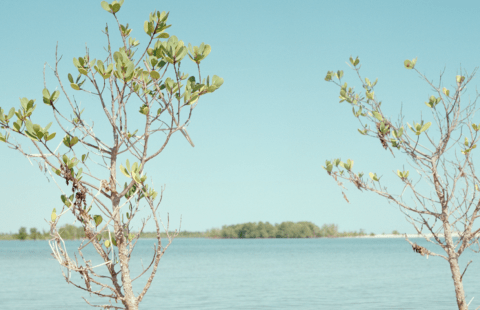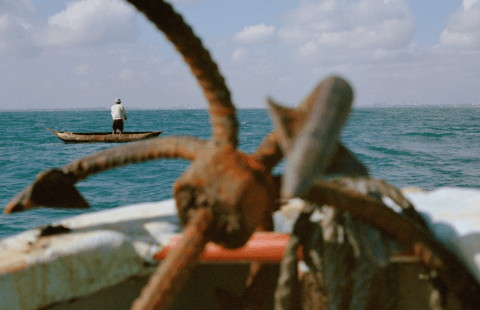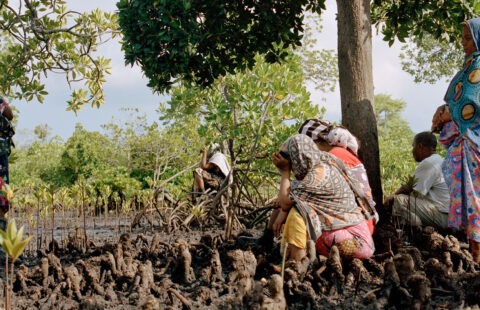

Superheroes of biodiversity – why mangroves matter
Survival artists, nature’s kindergarten, climate savers – mangroves are versatile superheroes. They are habitat and nursery for over 3000 fish species, can store 3 to 5 times more carbon per area than tropical upland forests, and provide livelihoods for over 120 million people.
But this unique ecosystem is under threat: more than a third of all mangrove forests have disappeared since the mid-20th century due to agriculture, logging and urbanization. If present deforestation rates continue, all mangroves could be lost by the end of this century.
How do we protect and conserve mangroves?
Our vision is a world in which thriving mangrove habitats exist in harmony with the communities they support.
With a focus on the Western Indian Ocean, the Save Our Mangroves Now! initiative unites governments, conservation specialists and coastal communities through a shared goal to conserve and restore mangrove habitats.
We combine our vision with a mission to facilitate policies, programmes and investments that regenerate mangrove ecosystems, tackle climate change and sustain livelihoods.
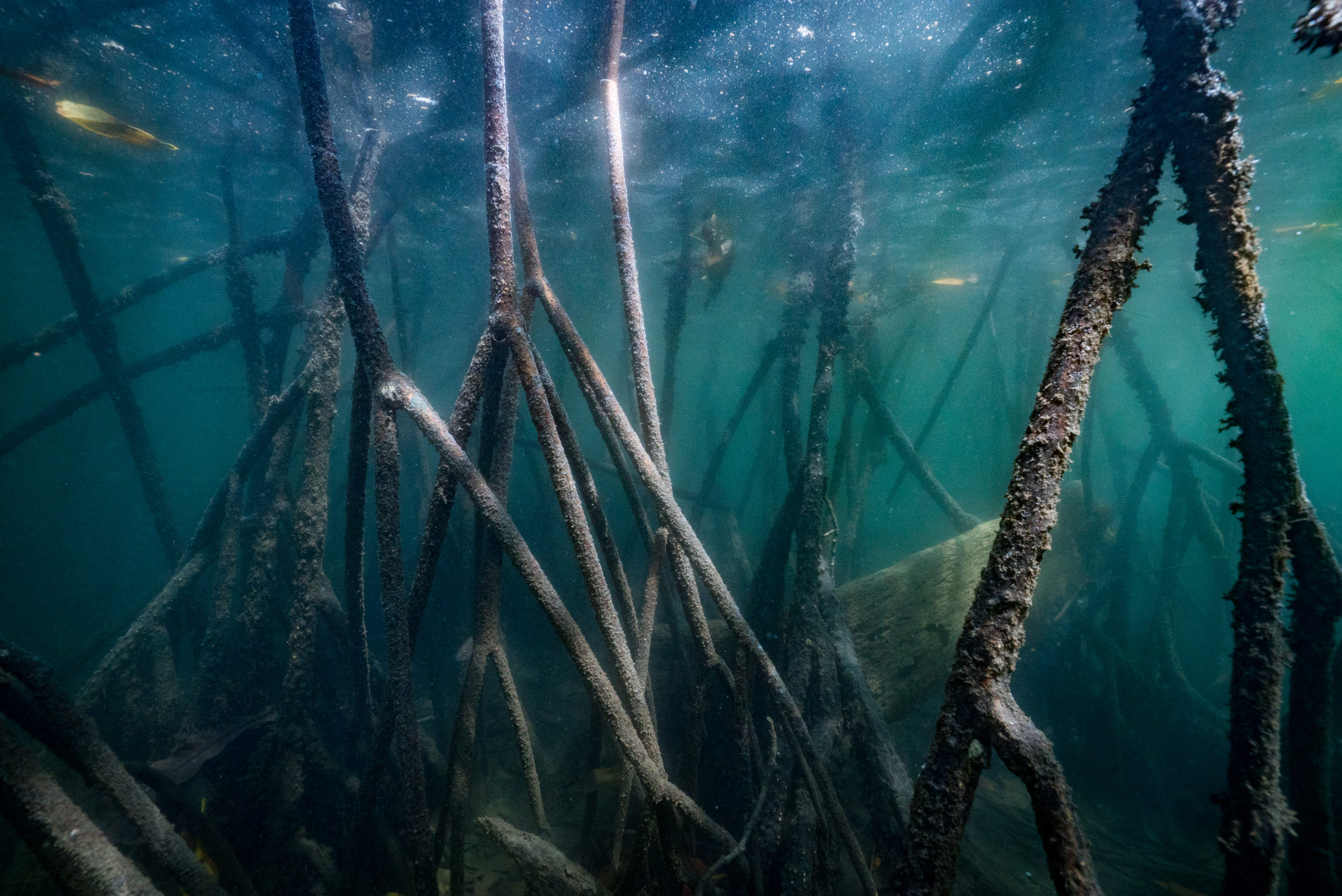
International policy
Our goal is to embed and strengthen ambitious objectives on mangrove conservation in international and national political agendas such as the Sustainable Development Goals (SDGs), the Convention on Biological Diversity (CBD) and the Paris Agreement. The UN decades on Ocean Science and Ecosystem Restoration present additional global frameworks for accelerating action on sustainable mangrove management.
With the elaboration of the post-2020 strategic framework of the CBD, the upcoming Global Stocktake and Ocean Dialogue under the Paris Agreement, and the expiration of several targets under SDG14 (Life Below Water), it is vital that marine and coastal nature-based solutions such as mangroves gain importance in political decision making.
We provide guidance for decision makers on why and how to protect mangroves – for securing livelihoods, conserving biodiversity and addressing climate change.
And we call on them for action.
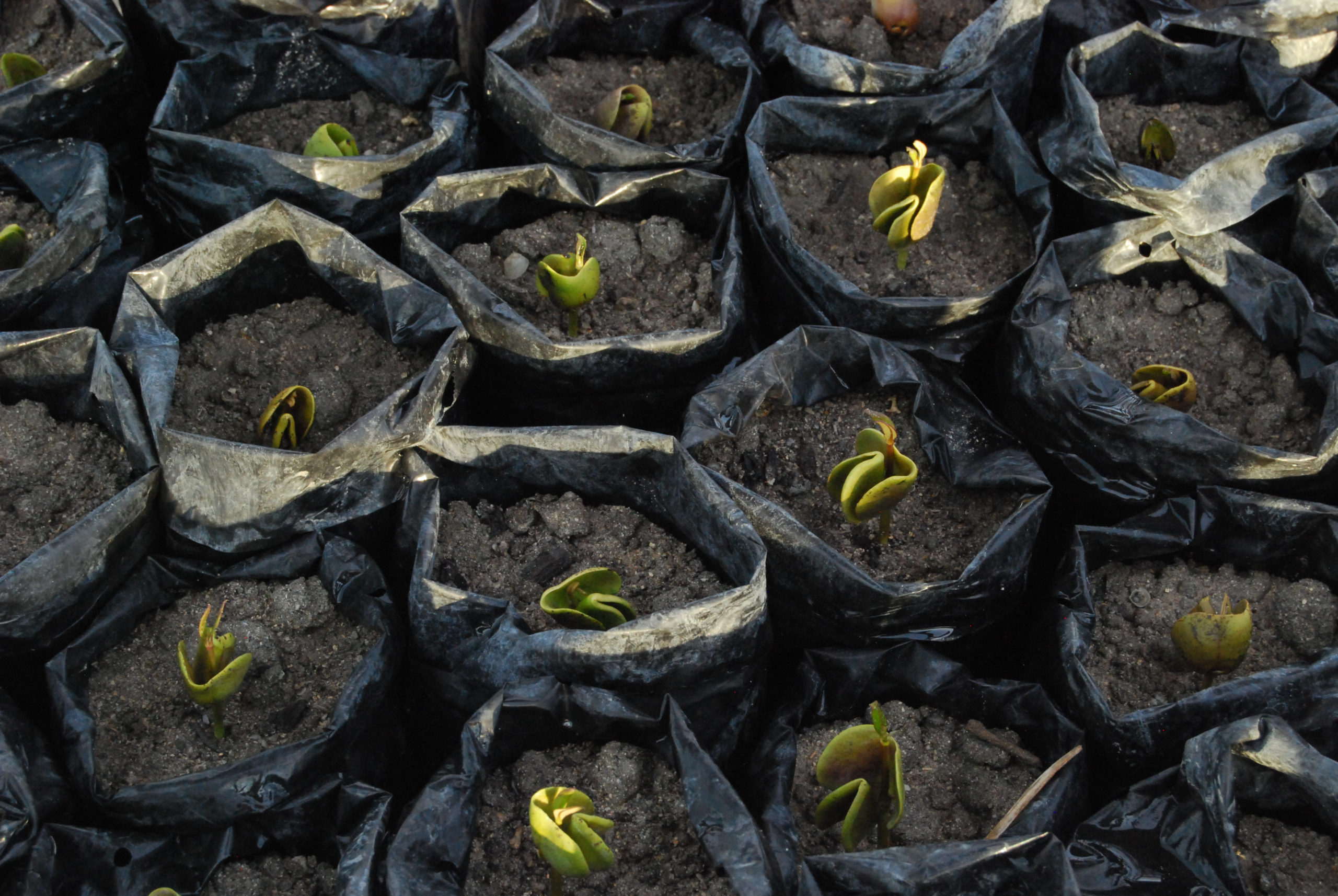
National policy and regional cooperation
We believe that a regional approach is needed to effectively halt mangrove loss and support the Western Indian Ocean (WIO) region to become a champion in mangrove conservation. Our engagement with a variety of stakeholders – from academics to law professionals, field developers, government officials, policymakers and representatives of the private sector – facilitates exchange and supports regional networks, paving the way for mainstreaming mangrove conservation into national strategies.
We support capacity development in the Western Indian Ocean, following the needs identified by the regional stakeholders themselves. Measures include undertaking assessments of national legal frameworks and the socio-economic value of mangroves in the region, as well as mapping mangrove extent to determine future losses and gains.
We also support lighthouse projects to foster innovation, identify best practices, and bridge the science-policy gap – for example in Kenya, where we engaged the mapping and assessment of carbon stocks in Lamu´s mangroves. At the same time, and together with our partners, we prepare the ground to integrate the results into national policy.
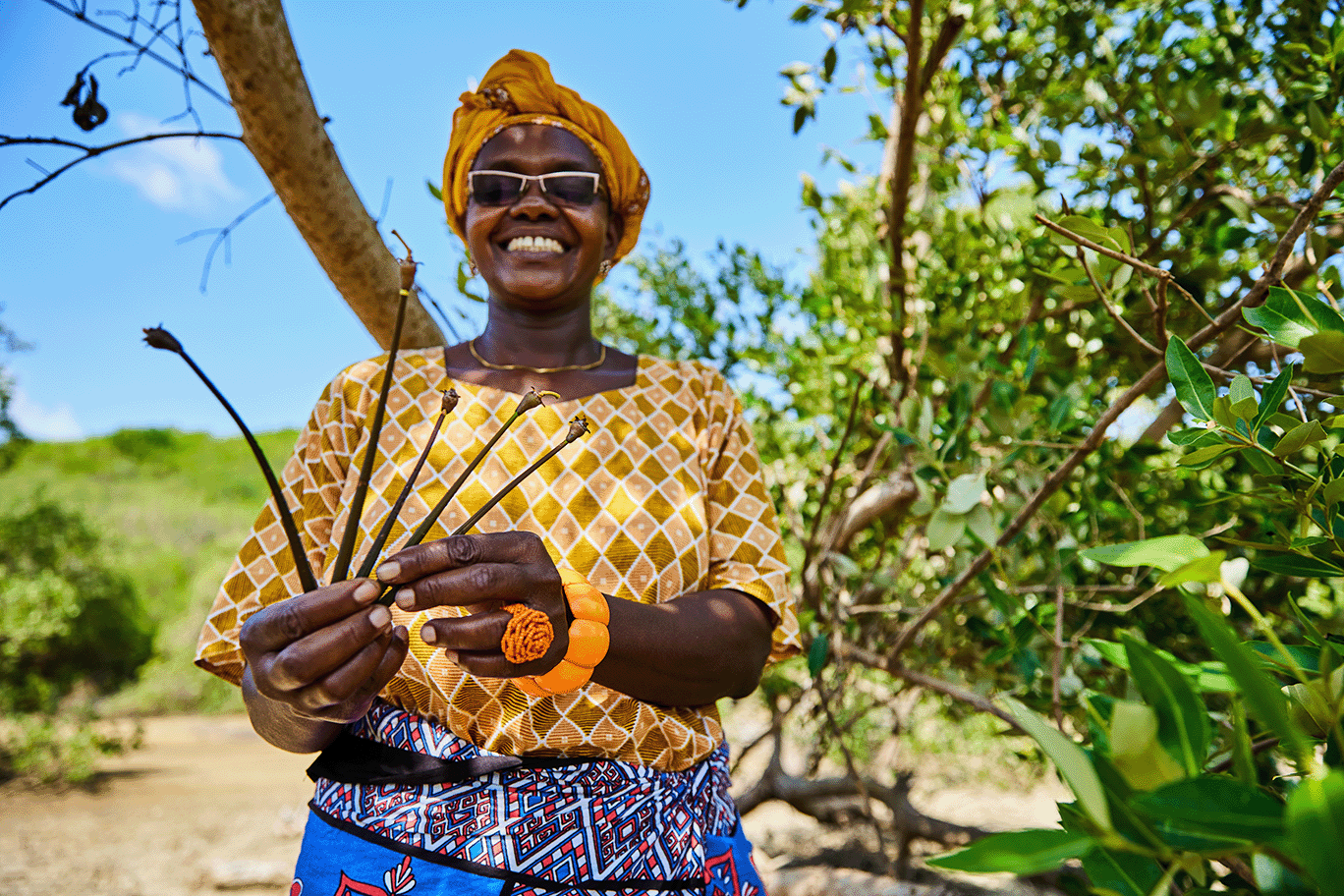
Partnerships
Our political goals, and ultimately their implementation on the ground, can only be achieved through broad cooperation with a large array of stakeholders. One of our essential tasks is therefore to build and facilitate partnerships with actors at all levels, to make sure that mangroves are recognized for the benefits they provide to people and nature, and that their protection receives adequate attention and funding.
We support the broad and ambitious approach of the Global Mangrove Alliance (GMA), which brings together leading conservation NGOs and provides a strategic platform for the global alignment of mangrove agendas. In the Western Indian Ocean, our natural partner is the WIO Mangrove Network, which holds the biggest expertise and experience on mangrove conservation and restoration.
Knowledge exchange is a crucial factor of successful cooperation. We are dedicated to creating opportunities for exchange, improving knowledge accessibility for all stakeholders, and helping close existing knowledge gaps on mangrove protection.
— 01 Our Campaign
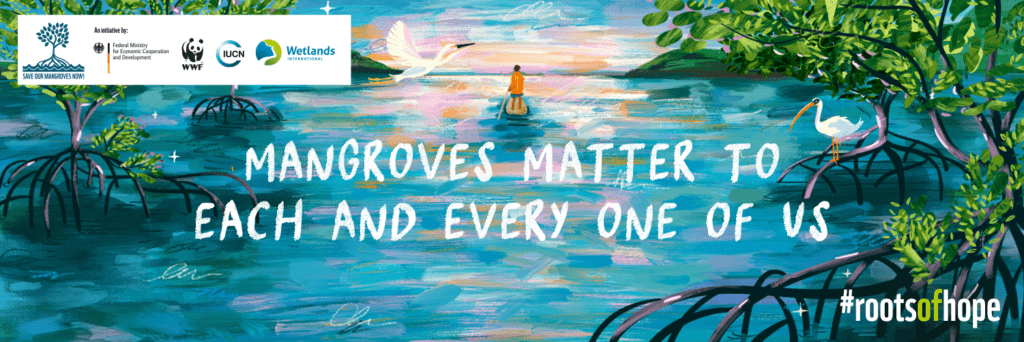
#RootsofHope
Mangroves should matter to each and every one of us. They regulate our climate, protect our coastlines, provide us with food, and sustain livelihoods. It’s time to listen to the stories of hope from mangrove communities across the world.
Our Roots of Hope campaign will travel through different mangrove communities in Madagascar, Tanzania, Mozambique and Kenya throughout 2021 and 2022.
With this grounded approach, we aim to create a movement focused on restoring biodiversity, preserving livelihoods and tackling the climate crisis.
— 02 Our Approach
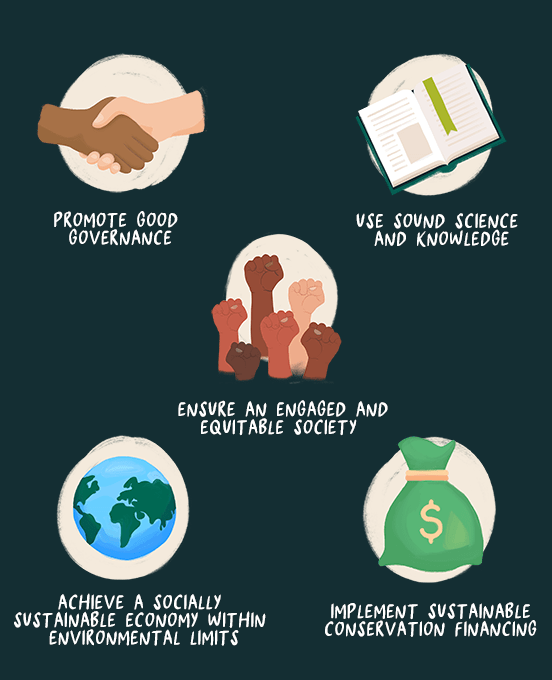
Guiding principles on sustainable mangrove management
Sustainable mangrove ecosystem management aims to promote conservation, restoration and the sustainable use of mangrove ecosystems to benefit local communities. In partnership with mangrove experts around the world, from policy-advisors to practitioners, we have developed guidance for national policymakers responsible for these efforts, in the form of nine Mangrove Principles. These guiding principles form the roots of conservation efforts by the mangrove community around the world.
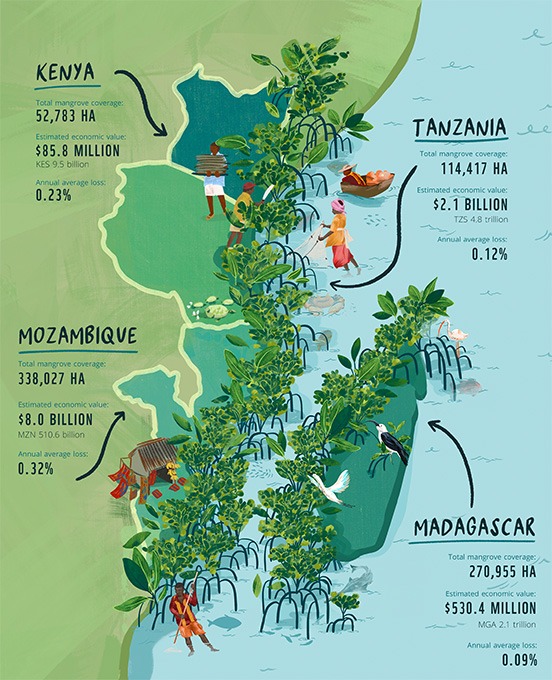
Socio-economic values of Mangroves
In 2016, there were more than 11 million hectares of mangroves worldwide, collectively storing the carbon equivalent of 21 gigatons of CO2. About 5% of these tidal forests are in the Western Indian Ocean region, including the four countries spotlighted in this report: Kenya, Madagascar, Mozambique and Tanzania. In this report we explore the specific benefits of mangroves to the four key countries, the localized threats to their forests, and critical conservation and restoration plans and challenges.
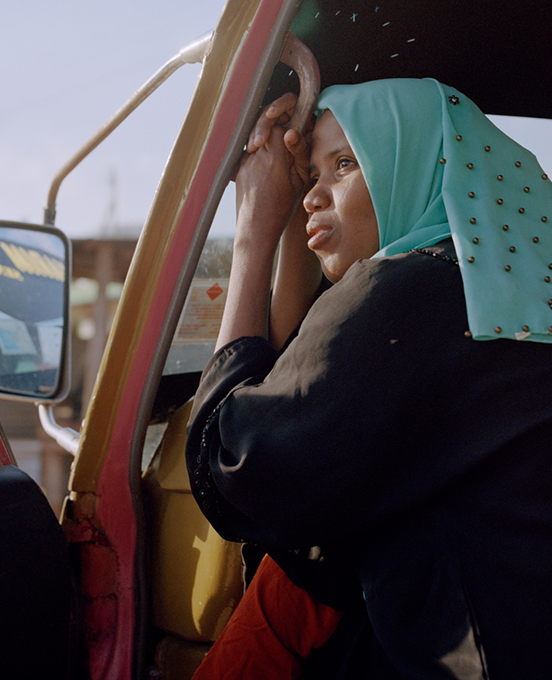
Stories from the Western Indian Ocean Region
Coastal communities are often the first affected by rising sea levels, decline of biodiversity, and pollution. Healthy ecosystems are directly tied to their livelihoods and well-being. Their voices need to be heard. Meet our mangrove messengers – inspiring men and women involved in mangrove conservation in Kenya, Mozambique, Tanzania and Madagascar. Follow our protagonists in their daily life and learn about the progress and challenges mangroves are facing in their region.
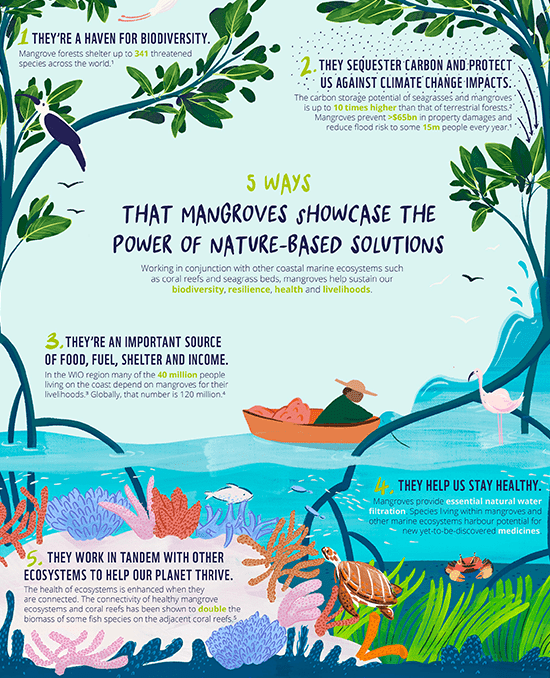
How mangroves help us live in harmony with nature
In in December 2022 governments adopted a new global biodiversity framework which will guide actions worldwide to preserve and protect nature. This detailed guidance illustrates how mangrove ecosystems contribute towards the achievement of multiple goals, targets and associated indicators so that “by 2050, biodiversity is valued, conserved, restored and wisely used, maintaining ecosystem services, sustaining a healthy planet and delivering benefits essential for all people”.
— 03 Our latest Study
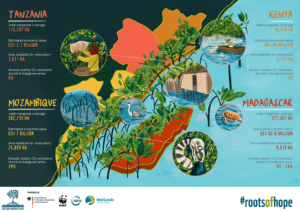
Mangrove forests are some of the most complex and awe-inducing ecosystems in the world. About 5% of the 14.5 million hectares of mangroves worldwide are located in the Western Indian Ocean (WIO) region. Within that region, 99% of mangroves – some 745,518 ha – are found in Kenya, Madagascar, Mozambique and Tanzania. Mangrove forests provide immense value to the coastal communities within these countries. In addition to being a source of food – providing nurseries and habitat for fish and crustaceans amongst a wealth of other species – mangroves maintain the livelihoods of hundreds of thousands of people across the region, supporting industries such as fishing, beekeeping and tourism. This report offers an overview of our work, bringing together data on extent, loss and gains, and the socio-economic value of mangroves in the region, as well as governance challenges and policy opportunities.
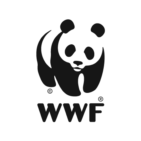
International WWF Centre for Marine Conservation
Mönckebergstr. 27
20095 Hamburg
Germany

IUCN
Global Marine & Polar Programme
Rue Mauverney 28
1196 Gland
Switzerland
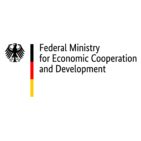
Federal Ministry for Economic Cooperation and Development (BMZ)
Dahlmannstraße 4
53113 Bonn
Germany



